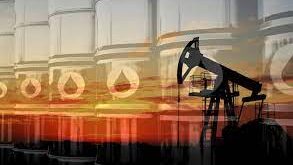Several major oil companies and investors have announced in recent days they are withdrawing from Russian resource development or not pursuing new projects with Russia, including in the Arctic, after Russia’s invasion of Ukraine.
BP was the first to announce such plans. On Sunday, the company said that it was exiting its 19.75 percent shareholding in Russia’s Rosneft and requiring its directors to resign from the Rosneft board. Chair Helge Lund said the company’s “involvement with Rosneft, a state-owned enterprise, simply cannot continue.”
The move will likely affect the massive Vostok oil project in the Russian Arctic. BP has deep knowledge of offshore development, and their financing has been an important part of Rosneft’s plans for Arctic extraction.
Norway’s Equinor, which has worked in Russia for three decades and established a cooperation agreement with Rosneft in 2012, said Monday that it will stop new investments in Russia and begin exiting joint ventures. Equinor President and CEO Anders Opedal said “we regard our position as untenable” in Russia.
Also on Monday, Shell terminated its 27.5 percent stake in the Sakhalin LNG 2 facility, a key link to Asian markets.
ExxonMobil said on Tuesday it was taking steps to exit the Sakhalin-1 project it operates on behalf of an international consortium that includes Japanese, Indian and Russian companies. The oil major also announced won’t invest in any new Russian projects.
India’s state-owned oil company, which had expressed interest in investing in Vostok through a consortium and in Novatek’s Arctic LNG 2 project, now says it has no immediate plans to invest in Russia.
Norges Bank Investment Management, the part of the Norwegian central bank that operates the $1.3 trillion sovereign wealth fund and holds stock in gas producer Gazprom and oil major Lukoil, announced on Sunday it was freezing investments in Russia.
And the commodities trader Trafigura has said it won’t make any new investments and is reviewing its role in Vostok Oil, while the trader Vitol hasn’t made a statement.
TotalEnergies and Chevron, which holds a 15 percent share in the Caspian Pipeline Consortium, are the last remaining oil majors in Russia. (ConocoPhillips ended Russian operations in 2015.)
TotalEnergies holds a 19.4 percent stake in Novatek, Russia’s largest LNG producer, but the French company said it will “no longer provide capital for new projects in Russia.”
Total is staying in Russia for the time being because “they cannot do otherwise, really,” Mikaa Mered, lecturer on polar affairs at Sciences Po, told ArcticToday in an email.
“Their Arctic projects in Russia — LNG ones in particular — are an absolute critical pillar of TotalEnergies’ decarbonization commitments.”
Because of these long-term plans, Total is taking a “low-profile, wait and see approach,” Mered said.
Lukoil, the Russian oil giant, called on Thursday for the invasion to halt, one of the first major companies in Russia to do so.
Meanwhile, two Republicans in the U.S. House of Representatives, including Alaska’s Don Young, pressed forward on Thursday with legislation to ban imports of Russian oil.
Two bills introduced on Tuesday in the U.S. Senate, one from nine Republicans and one from Ed Markey, a Democrat from Massachusetts, would also prevent Russian oil imports.
It’s likely Russian President Vladimir Putin will look for increased Chinese investments — but it’s not clear whether China has the interest or will to do so, Sherri Goodman, former U.S. deputy undersecretary of defense in environmental security and a senior fellow at the Wilson Center’s Polar Institute, said in an email to ArcticToday.
“Actively rescuing Russia in the current state of the world might not look good — and rightly so — in the eyes of Western Arctic nations, and would probably be seen as crossing a red line,” Goodman.
There may be long-term consequences from these moves to disinvest, especially in an increasing shift to renewable energy, Goodman said. “[A]s the Russian Arctic oil and gas reserves increasingly become stranded assets with the EU and U.S. accelerating their green transition, Russia’s both economic power and leverage power will eventually decrease.”

 Iran Energy News Oil, Gas, Petrochemical and Energy Field Specialized Channel
Iran Energy News Oil, Gas, Petrochemical and Energy Field Specialized Channel



